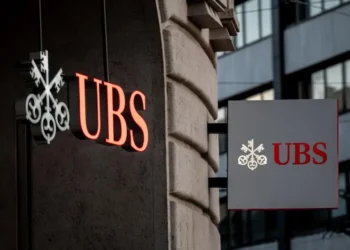In a move that underscores its shifting regulatory strategy, Coinbase has turned its lobbying focus toward the United Kingdom, urging lawmakers to take a more proactive and supportive stance on crypto. The company’s latest push came in the form of a sharply worded op-ed in the Financial Times, penned by former UK Chancellor and now Coinbase Global Advisor, George Osborne. The message was clear: if Britain wants to be a global fintech leader, it can no longer afford to drag its feet on crypto regulation.
This renewed effort signals a pivotal turn in Coinbase’s international advocacy. After facing mounting frustration in the United States, the crypto exchange now sees the UK as a battleground for shaping future-friendly regulatory frameworks.
Why Coinbase Is Turning to the UK
The shift in Coinbase’s strategy is not surprising given its increasingly tense relationship with U.S. regulators. CEO Brian Armstrong has frequently criticized the SEC’s aggressive stance toward digital assets, calling it both unclear and stifling. In the UK, however, Coinbase sees a different opportunity—a government that, while cautious, has expressed a desire to become a “crypto hub.”
According to Osborne, the UK has the legal infrastructure, global financial reputation, and fintech appetite to lead the digital asset revolution—if policymakers are bold enough to act. He argues that clear rules and a supportive environment could unlock both innovation and job creation, particularly in areas like stablecoins, tokenized assets, and Web3 services.
The Op-Ed That Sparked the Shift
The FT op-ed didn’t hold back. Osborne called out the UK for “falling behind” in the global crypto race and warned that talent and capital will migrate elsewhere if regulatory uncertainty continues. He specifically urged lawmakers to fast-track licensing processes, clarify tax treatments, and differentiate between digital asset types rather than painting them all with the same brush.
This high-profile media move comes alongside other efforts, including a viral musical ad campaign that cheekily critiques UK bureaucracy through Broadway-style satire. While unconventional, the campaign has succeeded in getting the public—and Parliament—talking.
Armstrong Doubles Down
Coinbase CEO Brian Armstrong reinforced this message on social media. In a recent post on X, he said: “The UK has a chance to lead the next wave of financial innovation.
Our ad which got banned in the UK by the TV networks has sparked quite a reaction. If you can’t say it, then there must be a kernel of truth in it.
— Brian Armstrong (@brian_armstrong) August 3, 2025
Needing to update the system and improve society is not a political statement on either party in the UK (some have tried to turn it… https://t.co/VJqyYnnI2W
But if it wants the benefits, it needs to stop sitting on the fence.” The tweet has since gone viral, gaining support from industry leaders and Web3 founders alike.
Armstrong’s stance echoes previous concerns raised in Politico’s deep dive into Coinbase’s global lobbying efforts. The company has dramatically increased its political outreach in the past year, particularly in Europe and Asia, as it looks to escape U.S. regulatory hostility.
UK Crypto Adoption on the Rise
The timing of Coinbase’s push also coincides with a rise in UK-based crypto interest. According to DeFiLlama, GBP-pegged stablecoins have quietly grown in volume, and UK-origin DeFi protocols are seeing more traction. This trend strengthens Coinbase’s argument: the market exists, and it’s hungry for clarity.
Source: DefiLama
Moreover, the Bank of England and HM Treasury have recently accelerated consultations on digital asset frameworks, making this a critical window for Coinbase to influence the conversation.
Will the UK Respond?
The big question now is how UK lawmakers will respond to Coinbase’s call to action. With an election cycle looming and financial innovation back on the political agenda, there’s a growing chance that digital assets could become a serious topic of policy debate.
However, regulatory momentum in the UK has historically been slow. Despite launching the Cryptoasset Taskforce in 2018 and proposing the Financial Services and Markets Bill, tangible progress has lagged. Coinbase hopes its pressure—combined with rising public interest—will force the issue.
Final Thoughts: What Coinbase’s UK Pivot Means for the Industry
Coinbase’s lobbying pivot to the UK is more than a geographic shift—it’s a strategic escalation. The company is using every tool in its arsenal, from op-eds and viral ads to executive influence, to reshape the regulatory narrative abroad.
For investors and startups in the crypto space, this moment could be crucial. If the UK embraces a clear, innovation-friendly approach, it could attract talent and capital currently fleeing the US. On the other hand, failure to act might cement its status as a laggard.
One thing is clear: Coinbase is no longer waiting for the US to catch up. The battle for crypto regulation is going global—and the UK may be its next proving ground.










